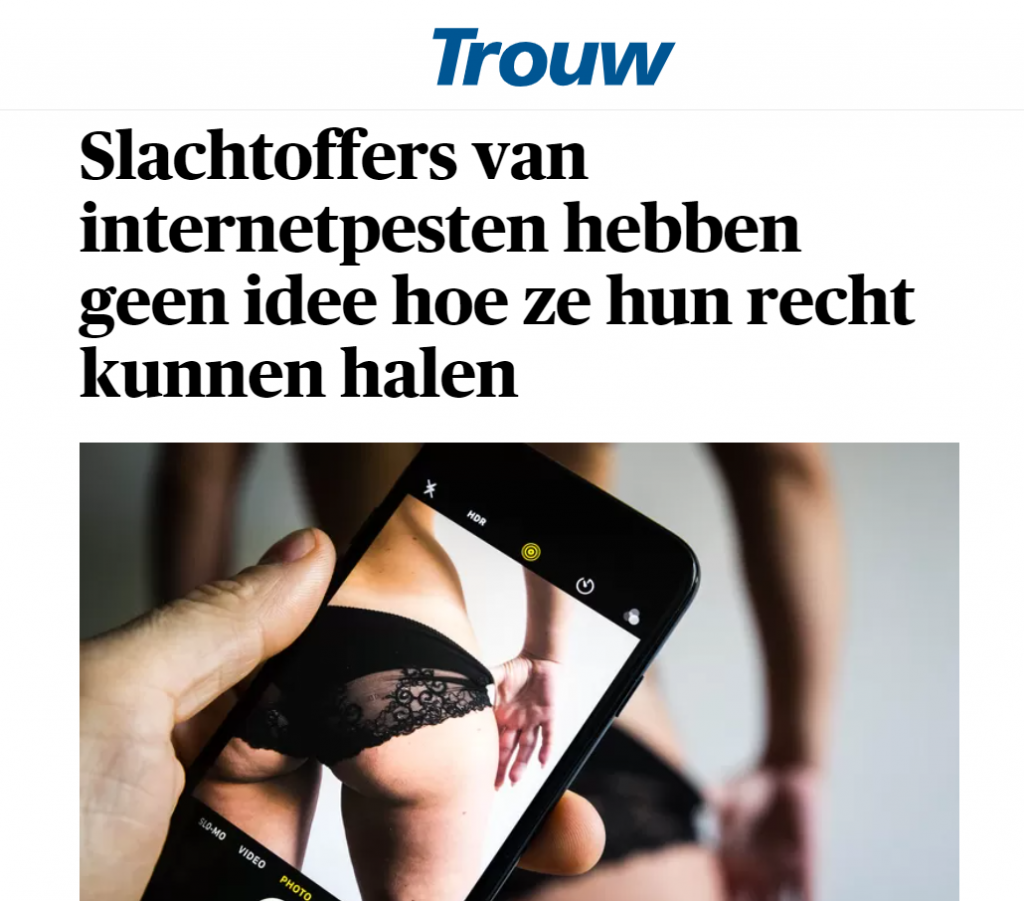the removal of unlawful online content
Five University of Amsterdam researchers affiliated to the Digital Legal Lab – Joris van Hoboken, Naomi Appelman, Anna van Duin, Ronan Fahy & Natali Helberger – co-authored a report on the legal and practical feasibility of a new procedure for the removal of unlawful online content that affects people personally.
In an interview with daily newspaper Trouw, Naomi Appelman explained what the law can and can’t do about forms of online harassment that involve publishing personal information without consent. Find out more about the report and the interview below.
The report
Voorziening voor verzoeken tot snelle verwijdering van onrechtmatige online content (2020), commissioned by the WODC (Research and Documentation Centre).
Authors
Joris van Hoboken, Naomi Appelman, Anna van Duin, Tom Blom, Brahim Zarouali, Ronan Fahy, Michelle Seel, Elisabetta Stringhi & Natali Helberger.
English summary
The report provides insight into the legal and practical feasibility of a new procedure for the removal of unlawful online content that affects people personally. Unlawful content online is information, posted by people on the internet, that is unlawful because of its harmful effects and/or because it seriously affects the interests of others. One can think of examples such as online threats, privacy infringements or revenge pornography. The aim of the research is to investigate whether there could be a suitable procedure in the Netherlands that enables people to remove this unlawful online content as quickly as possible. The research focuses on unlawful online content that falls within the scope of the right to private life under Article 8 of the European Convention on Human Rights (“ECHR”).
in the media
Naomi Appelman was interviewed by Trouw about the research report and some of its most important conclusions. She talked about the difficulties that victims of online harassment face to take legal action against their attackers. Read the article here (in Dutch).
